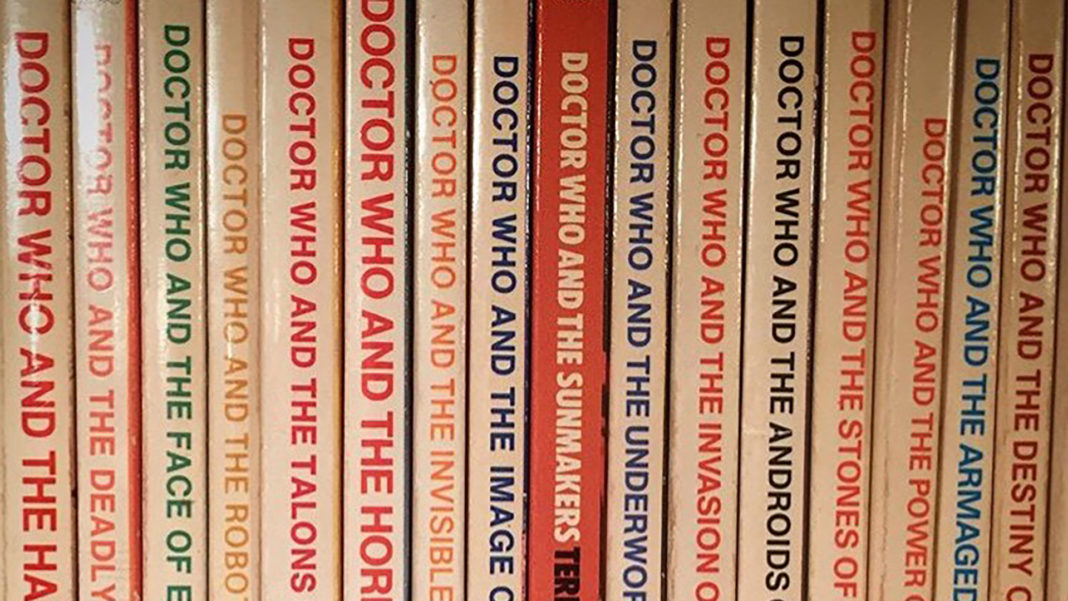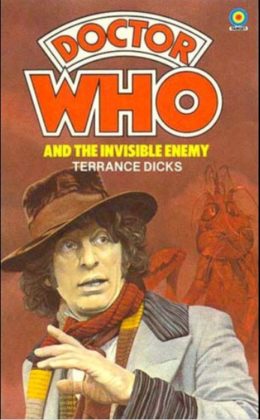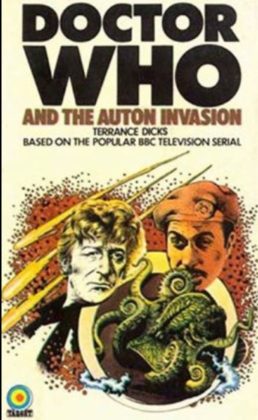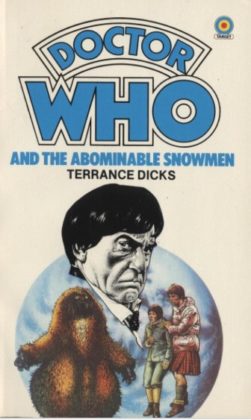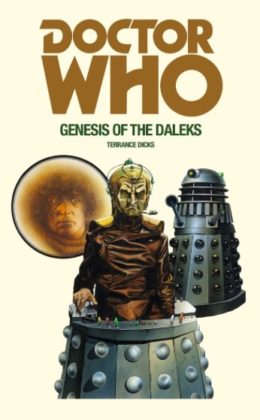By Donal O’Keeffe
Terrance Dicks passed away last week, and for a while when I was small, he was my favourite writer.
In 1968, Terrance Dicks was hired by the BBC as an assistant script editor on the science fiction TV series Doctor Who. Dicks, who had supplemented his income as an advertising copywriter by writing BBC radio plays before co-writing episodes of The Avengers and Crossroads, was hired by Doctor Who script editor Derrick Sherwin.
“I asked him how long it would be for, and he said it would be a three-month contract,” Dicks recalled in 2014. “And there went the rest of my life.”
Quickly promoted to script editor, a role he would perform until 1974, Dicks wrote many episodes of the programme, and went on to adapt over 60 of the serials as best-selling novelisations for the Target Books range.
Those books would serve as a gateway drug for hundreds of thousands of children. It would be entirely fair to say that Terrance Dicks was the JK Rowling of the 1970s and 1980s.
“I enjoyed writing the novelisations,” he said earlier this year, “and, to be honest, it grew easier over the years. Also, I was making a good deal of money!”
A genial cockney, Terrance Dicks was an unpretentious writer who had a workmanlike approach to the job.
“When enthusiasm or energy ebbs, it’s a matter of being a professional. You must have a deadline and it must be kept.”
When asked what inspired him to write, he once replied “An advance and a contract.”
Dicks had a spare, no-frills writing style, never wasting a word, and always grabbing the reader from the opening, single-sentence paragraph. (“A police box which was not a police box at all sped through the space-time vortex.”)
We couldn’t get the BBC when I was a child, but in the mid-to-late 1970s, Doctor Who Weekly featured a comic-strip based on Tom Baker’s Doctor’s adventures.
The Doctor – real name unknown, though probably not “Doctor Who” – travelled through space and time in the TARDIS (“Time and Relative Dimensions in Space”), a ship bigger on the inside, and stuck disguised as a 1950s police telephone box.
Eccentric and non-violent, the Doctor, with his companions – usually attractive young women – fought alien monsters, and always saved the day.
I was fascinated by the character, the Harpo hair and the crazed, beaming smile, but it was through the Target Books series – most of them written by Terrance Dicks – that I really got to know Doctor Who. In those days before the internet and DVDs, I went to Fermoy Library and read Doctor Who novelisations.
In those past adventures, the Doctor (“that mysterious traveller in time and space”) was described by Dicks variously as “a crotchety old man in a black frock coat”, a vagabond with “baggy check trousers and a mop of untidy black hair” and an imposing patriarch with bouffant hair and a “young-old face”.
Baker (“a tall curly-haired man in a broad brimmed hat and long trailing scarf”) was the Doctor, but there had been three Doctors before him. To someone who had never seen so much as a clip of the TV show, this was an astonishing revelation.
Dicks recalled that when he joined Doctor Who in 1968, “the script situation was fairly diabolical and chaotic.
“The most extreme example I can think of is when a four-parter and six-parter had fallen through, and Derrick Sherwin came into my office and said, ‘Terrance, we need a 10-part Doctor Who and you’re going to write it and we need it next week’.”
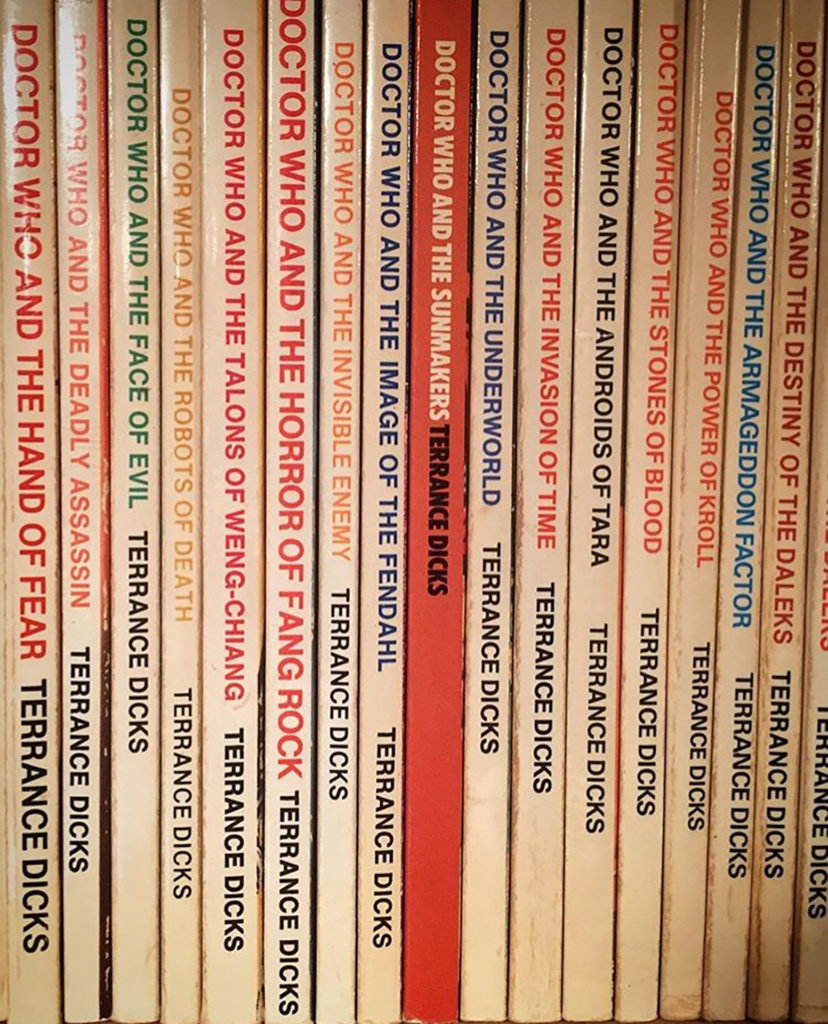
Working with his friend Malcolm Hulke, Dicks co-created “The War Games”, a 10-part 1969 story. It was to be the swansong for the Second Doctor, Patrick Troughton, and his companions Jamie (Frazer Hines) and Zoe (Wendy Padbury).
The story might well have served as a conclusion to Doctor Who, revealing that the Doctor was a renegade member of an ancient alien race known as the Time Lords.
The final episode – the last of the black-and-white 1960s – ends with the Doctor found guilty of the capital crimes of stealing a TARDIS and interfering in the affairs of lesser civilizations. Rather than execute the Doctor, the Time Lords sentence him to exile on Earth, his features altered to those of Third Doctor Jon Pertwee for the technicolour 1970s.
Apart from helping to define the Doctor’s backstory, Dicks also helped to crystalize the character too, with lifelong fan and then-showrunner Steven Moffat in the 2013 50th anniversary show “The Day of the Doctor” making Dicks’ phrase “Never cruel or cowardly” the Doctor’s personal motto.
(Moffat also embraced Dicks’ memorable description of the noise the TARDIS makes, that “wheezing, groaning sound”.)
Three decades earlier, Dicks had written the 20th anniversary show, “The Five Doctors”, an adventure featuring all of the Doctor’s incarnations to that point, and many of his companions and enemies, rewritten at the last minute when Tom Baker pulled out. (Unused archive footage came in very handy indeed.)
“It was like one of those games where you write a story out of objects found in a box,” he said. “This particular box had an awfully large number of objects in it. So you just started shuffling them around, trying to find a reason for them to fit together.”
When news broke of Terrance Dicks’ passing, many of those he had inspired paid tribute.
Neil Gaiman tweeted: “I remember reading his and Malcolm Hulke’s book THE MAKING OF DOCTOR WHO when I was eleven or twelve, and deciding then that I would one day write an episode of Doctor Who, because they had shown me how.”
“I don’t know where to begin,” said Paul Cornell. “He was such a wonderful, loveable man. He meant the world to me. He informed all my work. He always will.”
Mark Gatiss said: “Very hard to express what Terrance Dicks meant to a whole generation. A brilliant TV professional, a funny and generous soul. Most of all, an inspirational writer who took so many of us on unforgettable journeys into space and time. Bless you, Terrance.”
Jenny Colgan said that Dicks “helped more children (especially boys) develop a lifelong love of reading than almost anyone else who’s ever lived”.
Steven Moffat said of Dicks: “He was, I think, the writer who sorted out how the Doctor thinks. He thinks, as it turns out, exactly the way Terrance wrote.”
Perhaps the most eloquent tribute to Terrance Dicks came from former Doctor Who showrunner Russell T Davies, who posted on Instagram a photograph of his library of Terrance Dicks Doctor Who novelisations.
To the end, Dicks remained unsentimental about the job of a writer, telling Doctor Who Magazine this year: “Children’s fiction in my day was mainly concerned with action, adventure and humour.
“Today there is more concern about psychological and social problems. Personally, I’m with Hollywood producer Jack Warner: ‘If you’ve got a message, call Western Union!’”
I’m far too old now to have a favourite writer, but for a time, like so many other children, Terrance Dicks was my favourite writer.
Terrance Dicks 1935 – 2019.

